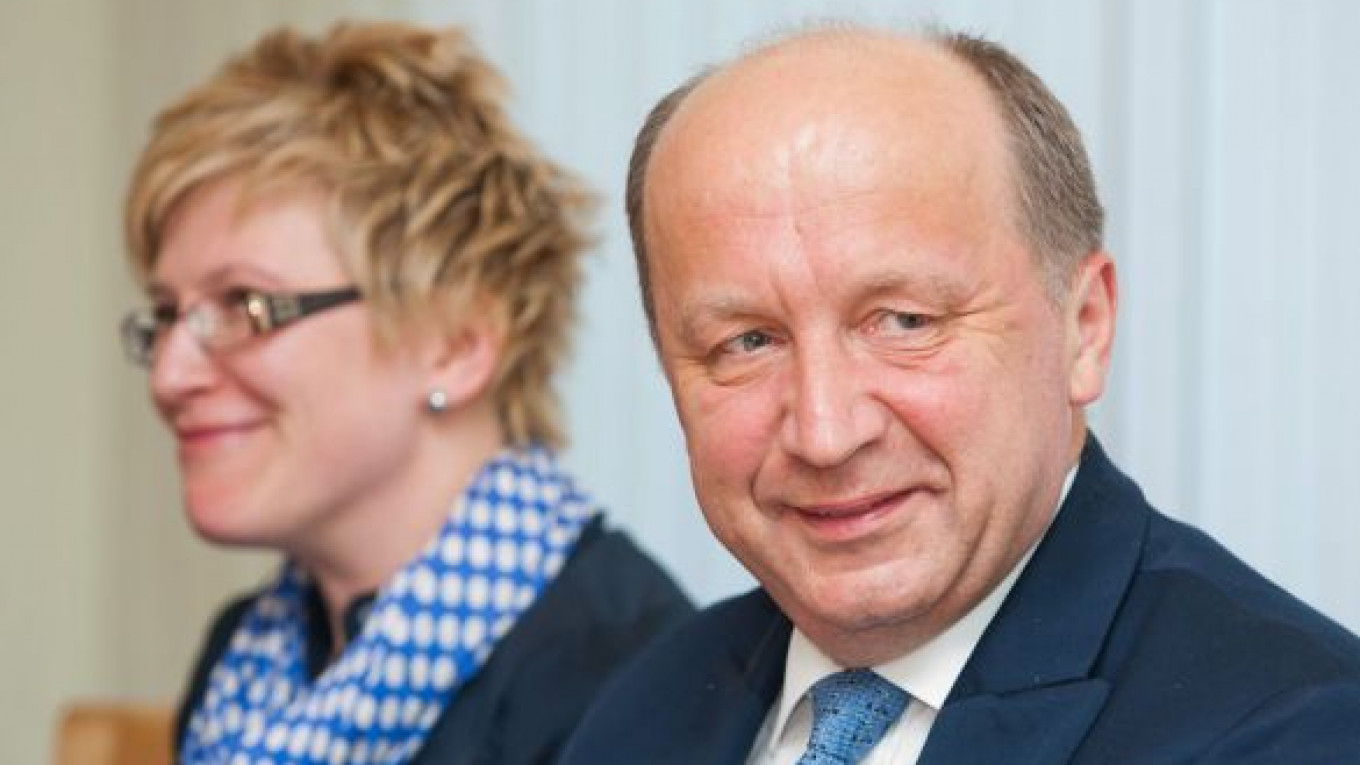Flat, featureless Pig's Back island off Lithuania is where the country hopes to moor a gas terminal in 2014 and escape total reliance on supplies from Russia, two decades after the Baltic states threw off Moscow's political rule.
The small bell-shaped island near the bustling port of Klaipeda is now home only to a solitary power pole, but is to become the mooring point of a floating liquefied natural gas terminal, spearheading a drive in the Baltics to gain energy independence with European Union support.
"It will help Lithuania reduce its dependence on a single gas supplier and allow access to international gas markets," said Rokas Masiulis, chief executive of the company in charge, Klaipedos Nafta.
Support for Lithuania's plans is part of wider efforts by the European Commission, the EU executive, which is using legislation, possible new sources of hydrocarbons such as shale gas and LNG as well as new pricing models to boost its leverage against Gazprom, which currently supplies a quarter of EU gas.
For Lithuanian Prime Minister Andrius Kubilius, the issue is simple. "We are paying $100 per 1,000 cubic meters of gas more than Germany, because we have no supply alternatives," he said.
Estonia's Prime Minister Andrus Ansip agreed.
"There is only one supplier for Estonia and that is Russia. … Of course, we would like to get some other supplier also," he said in an interview in the Estonian capital, Tallinn.
While Gazprom plays a major role across Europe, in the three Baltic states it completely dominates, supplying 100 percent of their gas.
Lithuania's planned offshore platform, expected to start operating at the end of 2014, is to provide about 11 million tons of imported LNG per day, helping it deal with any loss of Russian supply.
Even though the Baltic states are a tiny market at just 5.5 billion cubic meters per year versus a total 150 bcm supplied to Europe in 2011, developments in the region have annoyed the Russian giant.
"It sets a precedent, no one has challenged Gazprom like this before," said Andres Kasekamp, director of the Estonian Foreign Policy Institute think tank.
In Lithuania, unbundling — EU jargon for breaking the link between gas supply and distribution — has involved forcing gas firm Lietuvos Dujos, one-third owned by Gazprom and one-third by Germany's E.On, to approve a plan to spin off transport pipelines and complete unbundling by the end of October 2014.
Gazprom eventually voted unwillingly for the unbundling at a Dujos shareholder meeting, but has also taken its case to a court of international arbitration.
Lithuania still faces tough negotiations with Gazprom on several issues before it can take over the pipelines, including a buyout price for its pipeline stake and on transit of gas to the Russian enclave of Kaliningrad.
Russian energy specialist Andrei Konoplyanik said Gazprom had reason to be angry, as the EU laws created a dangerous precedent that contracts can be changed unilaterally.
"In my opinion, the EU should have given a transitional period to implement the new rules until the current [long-term] contracts run out," said Konoplyanik, a former deputy energy minister and government adviser and currently professor at the Gubkin Russian State University of Oil and Gas.
Pressure on Gazprom has come chiefly from Brussels rather than from Vilnius.
That was demonstrated during a meeting in February, when Gazprom's deputy head, Alexander Medvedev, flew to Vilnius to convince Lithuania to change the unbundling plan.
At the meeting, Prime Minister Kubilius was joined by Philip Lowe, head of the European Commission's directorate-general for energy, who made clear that Gazprom would have to play by EU rules.
"Gazprom has been pained that it lost a battle against EU regulations in a small country like Lithuania," said a senior Lithuanian government official, who declined to be named.
The European Commission's hand has also been evident in other developments affecting Gazprom's business in Europe, including the encouragement of a spot gas market.
That has led some European clients such as E.On, RWE and Poland's PGNiG to demand that Gazprom increase the cheaper spot pricing element in its long-term contracts.
Gazprom resolved its differences with Germany's E.On this week, offering a retroactive price cut on its long-term gas supplies, opting to renegotiate to keep its customers.
But Gazprom remains keen to safeguard the linking of export prices to those of oil, maintaining a 40-year-old practice that it says increases the predictability it needs to fund its investments.
A Message from The Moscow Times:
Dear readers,
We are facing unprecedented challenges. Russia's Prosecutor General's Office has designated The Moscow Times as an "undesirable" organization, criminalizing our work and putting our staff at risk of prosecution. This follows our earlier unjust labeling as a "foreign agent."
These actions are direct attempts to silence independent journalism in Russia. The authorities claim our work "discredits the decisions of the Russian leadership." We see things differently: we strive to provide accurate, unbiased reporting on Russia.
We, the journalists of The Moscow Times, refuse to be silenced. But to continue our work, we need your help.
Your support, no matter how small, makes a world of difference. If you can, please support us monthly starting from just $2. It's quick to set up, and every contribution makes a significant impact.
By supporting The Moscow Times, you're defending open, independent journalism in the face of repression. Thank you for standing with us.
Remind me later.






